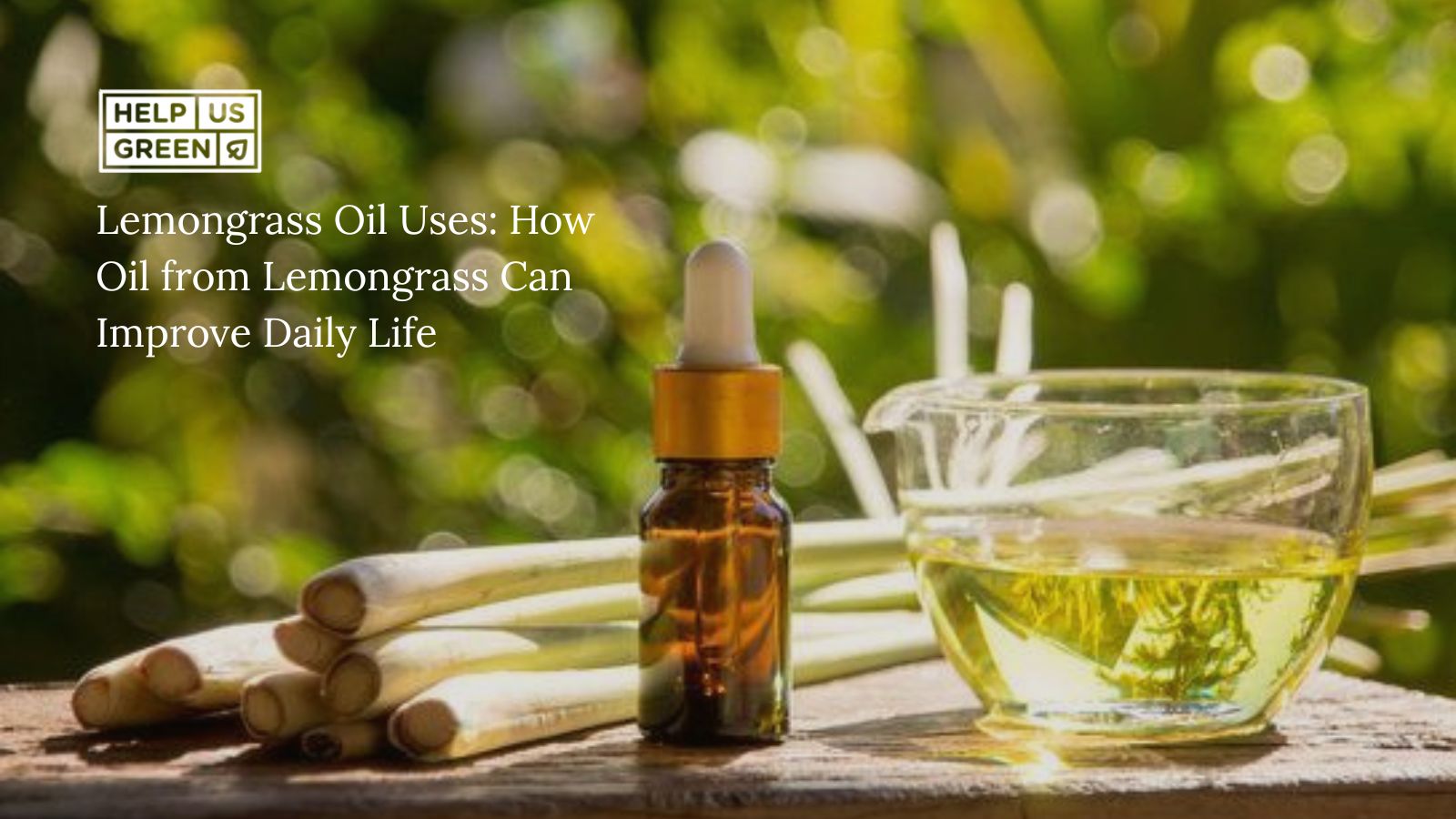If you have ever lit a lemony-scented candle at a summer barbecue, you have probably already met citronella. But beyond its bug-repelling fame, this essential oil has a long list of interesting tricks. From lifting your mood to helping with skin health, the citronella oil uses go way beyond just chasing mosquitoes out of your backyard.
In this blog, we will dive into what is citronella oil, the surprising citronella oil benefits, how you can use it safely, and even a quick look at how to make citronella oil if you are into DIY.
What is Citronella Oil?
Before we get into the details, let us answer the basics: is citronella an essential oil? Yes, it is extracted by steam-distilling the leaves and stems of the Cymbopogon (lemongrass family) plant. The word “citronella” comes from French, meaning “lemon balm,” which explains its fresh, citrusy aroma.
For centuries, people in Indonesia and China have relied on citronella oil uses for everything from treating rashes to adding fragrance to food and cosmetics. Today, it is best known as a natural bug shield, but that is just scratching the surface of what is citronella oil used for.
The Top Benefits of Citronella Oil
Let us cut to the chase: why is everyone talking about citronella oil? Here are some science-backed benefits of citronella oil you should know:
-
Natural Insect Repellent
Probably the biggest reason you have heard of it. Studies show citronella oil for mosquitoes works well for a few hours, especially when blended with vanillin. While it is not as long-lasting as DEET, it is a natural alternative many people prefer. -
Antifungal and Antibacterial Properties
Research has found that citronella oil benefits include fighting off certain fungi and bacteria. It may help with minor skin irritations and could be used in natural cleaning products. -
Mood Booster
Ever noticed how refreshing that lemony scent feels? Inhaling citronella oil can sometimes reduce feelings of fatigue and uplift your mood. -
Supports Wound Healing
Early studies suggest it might speed up wound recovery, thanks to its antifungal and anti-inflammatory nature. -
Potential Role in Weight Management
Animal studies suggest inhaling citronella might reduce appetite and help balance cholesterol. More research is needed in humans, but it is a promising start.
Summary: The citronella oil uses stretch from keeping pests away to lifting your spirits, making it a surprisingly versatile essential oil.
How to Use Citronella Oil Outside and Indoors
Wondering how to use citronella oil outside your home and indoors too? Here are the most common ways:
-
Spray: Mix 10–15 drops of citronella oil with water in a glass spray bottle. Great for keeping bugs away during picnics or refreshing a room.
-
Diffuser: Add a few drops into a diffuser to spread the aroma indoors. Works well as a natural deodorizer too.
-
Massage Oil or Cream: Dilute in a carrier oil such as coconut oil for topical application. It can help with minor skin concerns and relaxation.
-
Candles and Sticks: Light up citronella candles or mosquito repellent sticks to ward off insects during outdoor evenings.
If you want a sustainable solution that blends citronella with lemongrass, you will love Help Us Green’s natural mosquito repellent sticks.
How to Make Citronella Oil at Home
Curious about how to make citronella oil yourself? While you will not get the same purity as professionally distilled oils, here is a simple DIY approach:
-
Crush fresh citronella grass leaves.
-
Place them in a jar with a carrier oil such as olive oil.
-
Let the mixture sit in sunlight for 1–2 weeks, shaking it occasionally.
-
Strain the leaves and store the oil in a dark glass bottle.
This homemade infusion will not be as concentrated, but it still works for some basic citronella oil uses like natural room fresheners.
Safety and Side Effects of Citronella Oil
Like all essential oils, citronella needs to be used carefully. Here are some important points:
-
Always dilute before applying to the skin.
-
Avoid ingesting it, since essential oils can be toxic if consumed.
-
Test a small patch of skin first. Citronella oil side effects may include redness, itching, or irritation in sensitive individuals.
-
Pregnant or breastfeeding women should consult a doctor before use.
Summary: Citronella oil is safe when used correctly, but keep an eye out for possible skin reactions.
Final Takeaway
So, what is citronella oil used for? Quite a lot actually. From freshening up your home to keeping bugs at bay, the list of citronella oil uses is long and varied. While it may not replace heavy-duty repellents like DEET, it offers a natural, pleasant-smelling alternative with additional health perks.
If you are looking for a safe, eco-friendly way to enjoy its power, explore sustainable options like citronella mosquito sticks that make nature-friendly living a little easier.
FAQs About Citronella Oil
1. What is citronella oil best known for?
It is most famous as a natural mosquito repellent, but it also has antifungal and mood-lifting properties.
2. Can I apply citronella oil directly to my skin?
No. Always dilute it with a carrier oil first to avoid irritation.
3. Is citronella an essential oil or just a fragrance?
Yes, is citronella an essential oil. It is steam-distilled from citronella grass, not just a synthetic fragrance.
4. How long does citronella oil keep mosquitoes away?
On its own, it lasts about 2 hours. When combined with vanillin, it may protect for up to 3 hours.
5. Are there any serious citronella oil side effects?
Severe reactions are rare, but skin irritation and allergies are possible. Always patch test before use.





